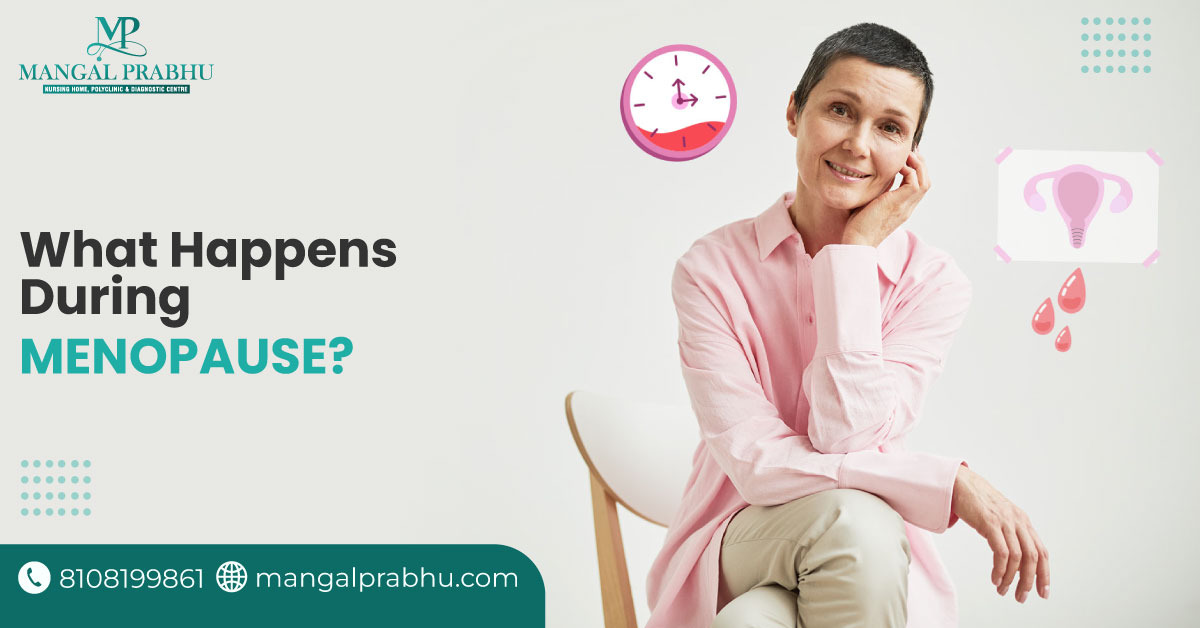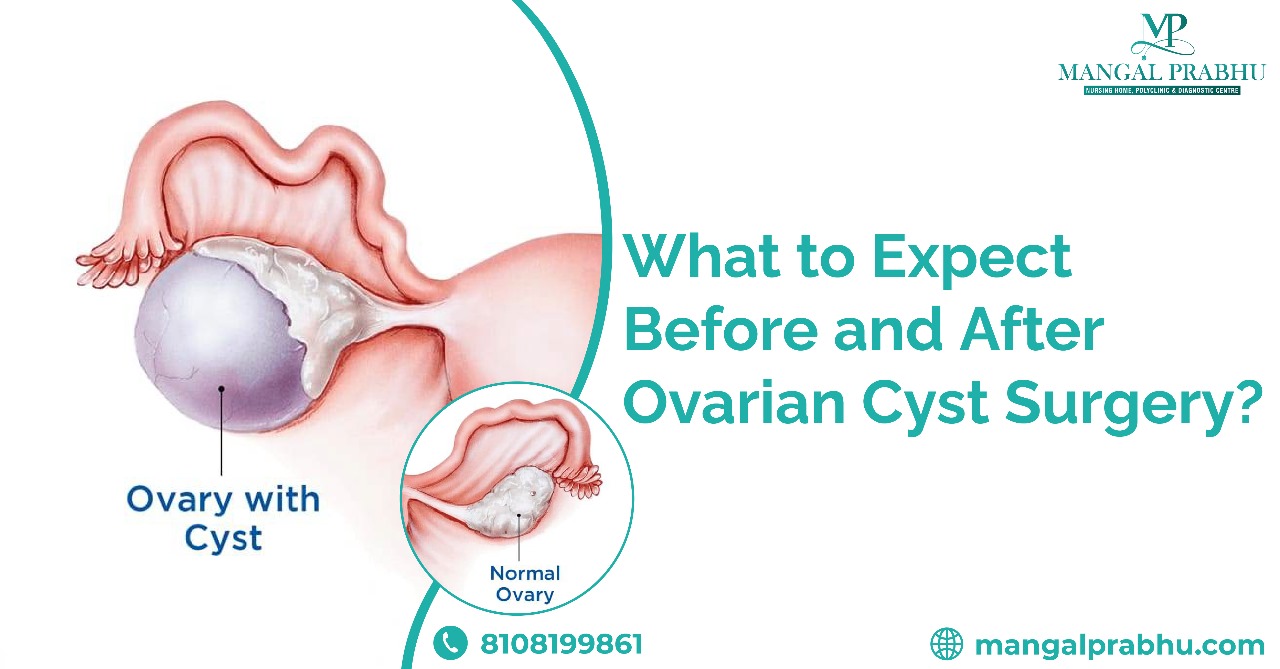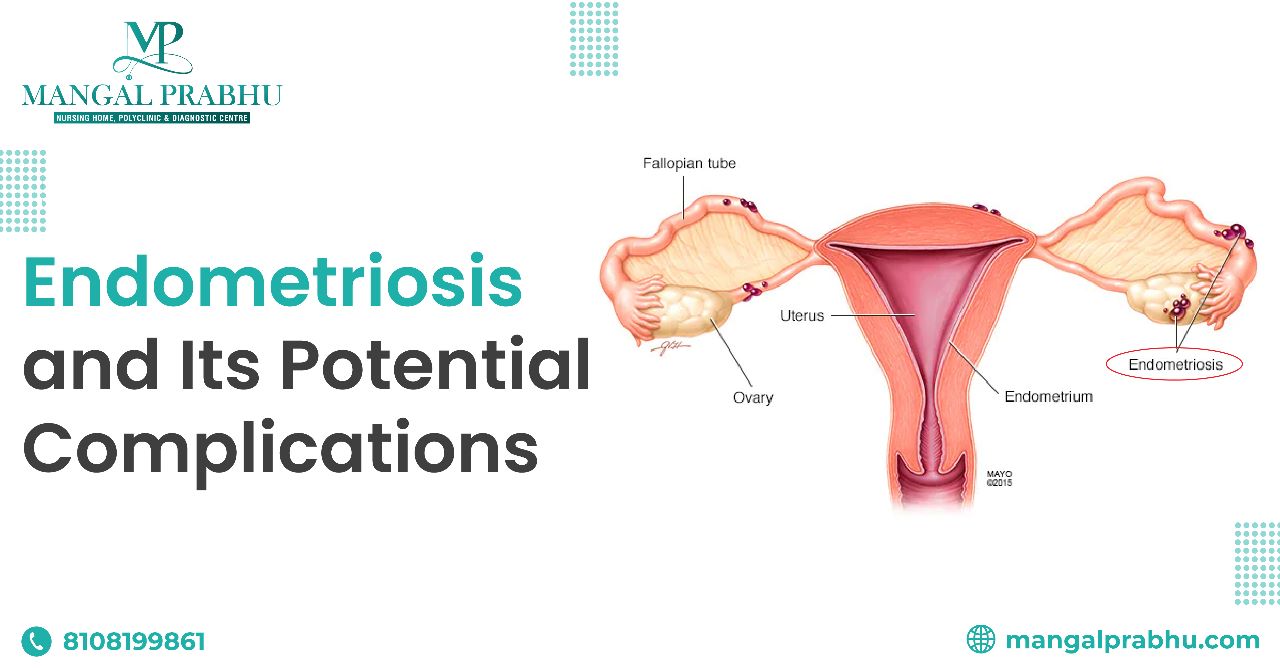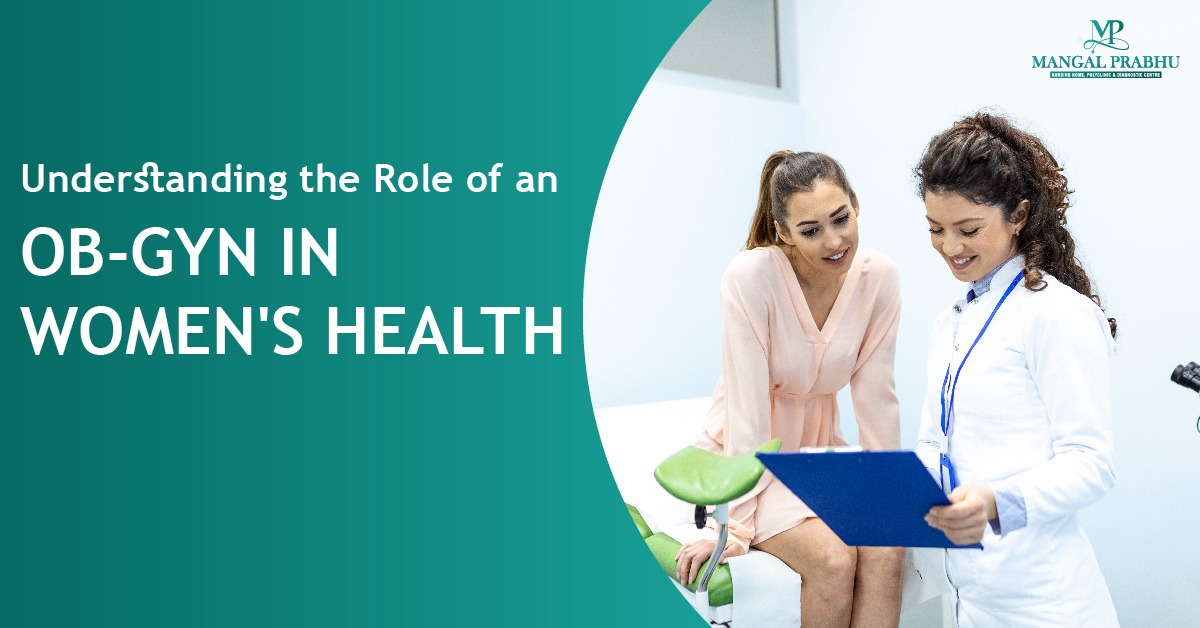
Difference Between Gynecologist and Obstetrician
I. Introduction
Women’s reproductive health is like the conductor orchestrating their participation in the workforce. Reproductive health services are the catalysts propelling women towards empowerment and providing healthy and safe well-being. In the grand journey into the realm of women’s health, an individual needs to unravel the intricacies of the contributed trio: OB/GYN, obstetrics, and gynecology. Although the terms might sound like a medical alphabet jumble, each holds a unique role in addressing the varied health needs of women. Get ready for an immersive journey into the domains of welcoming new life and safeguarding the enduring reproductive health of women with the best Maternity Hospital in Navi Mumbai like Mangal Prabhu Hospital.
II. What is a Gynecologist?
Gynecologists emerge from their educational crucible with a keen sense of preventive care, diagnostic skills, and the power to combat reproductive disorders like cancers and pelvic perils. Armed with an arsenal of knowledge on family planning and contraception, they’re the trusty sidekicks ensuring women’s reproductive well-being through every twist and turn. They are warriors against issues like irregular menstruation, infections, cancers, and a plethora of other reproductive challenges. Regular screenings and timely interventions with gynecologists ensure that potential threats are detected early, boosting the chances of triumphant recovery.
III. What is an Obstetrician?
With a similar origin story of education and residency, these conductors specialize in the spectacle of pregnancy and childbirth. They empower women to make informed choices, orchestrating the symphony of when and how to expand their families. Obstetricians dazzle in the realm of high-stakes pregnancies, fetal crescendos, and the dramatic outcome of childbirth. But their role doesn’t stop there; they continue the postpartum encore, ensuring the well-being of both mother and newborn.
Also Read: When to Consult a Doctor During Pregnancy?
IV. Similarities and Differences
Both gynecologists and obstetricians join forces in championing the cause of regular check-ups. Gynecologists mostly provide treatment for various reproductive issues and allow routine screenings, while obstetricians emphasize the importance of prenatal harmonies for the health of both mother and baby. Both specializations help ensure women stay in sync with their bodies at every stage. This dynamic duo ensures that women receive the specialized care they deserve, adapting their powers to the unique needs of each stage. In cases of complications, both specializations team-up becomes even more pronounced for their patients.
V. When to See a Gynecologist vs. Obstetrician
When you suffer from any reproductive systems enigmas, such as ovarian conundrums, uterine puzzles, endometriosis mysteries, menstrual issues, or sexual health, or you need consultation for contraceptives, then find solutions with a Gynecologist in Navi Mumbai at Mangal Prabhu Hospital. For those venturing into fertility expeditions or seeking assistance with family planning strategies, postpartum pampering, labor, and delivery, your obstetrician is the guide offering evaluations, fertility treatments, and a roadmap to your desired destination.
VI. Conclusion
By understanding the nuances of their roles, women can embark on a proactive journey towards well-being, armed with knowledge and help in taking steps to manage their reproductive health at every stage of life. Whether it’s a gynecological escapade or an obstetrical odyssey, rest assured that these healthcare providers stand ready to empower and uplift every woman, turning each chapter into a tale of triumph and resilience.

What Happens During Menopause?
What is Menopause?
Menopause marks the end of your menstrual period or the reproductive age. A woman can’t get pregnant after menopause. It happens when you have not had your period for 12 months in a row. There’s no fixed age for menopause, although most women tend to experience it between 45 and 51. It’s a natural aging process. However, the symptoms of menopause, especially during the perimenopause period, can take a toll on your physical and emotional health. It’s important to see a gynecologist in Navi Mumbai if you experience hot flashes, excess bleeding, pelvic pain, and other symptoms.
Common Symptoms of Menopause
Perimenopause is a period where a woman’s body prepares to enter menopause. During this phase, you might experience many physical and emotional symptoms, including:
- Hot flashes
- Sudden urge to urinate
- Inability to hold pee
- Vaginal dryness
- Difficulty sleeping
- Chills
- Weight gain
- Irregular periods
- Heavy bleeding
- Sudden shifts in mood
- Hair thinning
Symptoms can vary for each woman, although irregular periods are quite common in all.
Treatment Options for Menopause
Menopause doesn’t need treatment, but you can consider hormonal therapies and medication to get relief from the symptoms disrupting your life.
i) Hormone Therapy:
The amount of estrogen and progesterone (the two vital reproductive hormones in women) is reduced significantly as you enter menopause. This might cause vaginal dryness and hot flashes. Hormone therapy can restore and balance the levels of these hormones and alleviate the symptoms.
ii) Prescription Medication:
Non-hormonal medications for hot flashes, vaginal dryness, and mood swings can help manage your perimenopause symptoms.
Also Read: What to Expect Before and After Ovarian Cyst Surgery?
Lifestyle Changes to Help Manage Menopause
Menopause treatment in Navi Mumbai is needed if your lifestyle and dietary changes do not produce any results. Here’s what you can try in the meantime.
a) Diet:
Limit caffeine intake and avoid spicy food to manage hot flashes. You should add vitamin-rich foods to your diet to get the required nutrients. Add lentils, chickpeas, grains, soybeans, vegetables, and fruits to your diet.
b) Exercise:
Meditation and Yoga can help you with mental and physical issues with menopause. Regular exercising improves your sleep and reduces anxiety related to menopause.
c) Avoid Triggers:
Certain activities might trigger your symptoms and make them worse. For instance, your weight or smoking habits can worsen your hot flashes. Identify these triggers to manage your symptoms.
Potential Complications and Risks of Menopause
The risk of certain medical issues increases after menopause. You should watch out for the following:
A) Heart Diseases:
A sudden drop in estrogen levels in your body puts you at an increased risk of cardiovascular diseases. Check your cholesterol levels and blood pressure regularly to prevent any heart-related complications.
B) Urinary Incontinence:
You might experience a sudden urge to pee and the inability to hold it. Women after menopause might also experience urine leaks when coughing, sneezing, laughing, etc. Any physical jerk can lead to urge incontinence.
C) Osteoporosis:
Postmenopausal women are at a higher risk of fractures of the hip and knee joints, as their bones become weak.
Lastly, you might experience some discomfort during sexual intercourse because of the vaginal dryness. Speak with your doctor if you experience any of these post-menopausal complications.

What to Expect Before and After Ovarian Cyst Surgery?
Ovarian cysts are a common occurrence in women. However, most are harmless and resolve on their own, some may require medical intervention, including surgery. Experienced gynecologists and surgeons often perform ovarian cyst surgery. It is a procedure designed to address cysts that pose a risk to a woman’s health or cause significant discomfort. In this blog, you can get valuable information regarding what to expect before and after ovarian cyst surgery.
What is Ovarian Cyst Surgery?
Ovarian cyst surgery is also known as ovarian cystectomy. It is a medical procedure performed to remove cysts that have formed on the ovaries. It can vary in size and type, and while many are benign and cause no symptoms, others can be problematic.
What to Expect Before Surgery
Before undergoing ovarian cyst surgery, you can expect a series of preparatory steps and consultations with your healthcare provider:
- Consultation
Your gynecologist will thoroughly evaluate your medical history and perform a physical examination. They may also order imaging tests like ultrasounds to assess the cyst’s size, location, and composition.
- Discussion of Options
Based on the evaluation, your doctor will discuss the various treatment options, including surgical removal. You’ll have an opportunity to ask questions and voice any concerns.
- Pre-Operative Instructions
Your healthcare provider will provide pre-operative instructions, including dietary restrictions, medications, and guidelines on when to stop eating and drinking before the surgery.
- Hospital Selection
You may be required to choose a hospital for the surgery. Hospitals like Mangal Prabhu Hospital offer advanced facilities for Ovarian Cysts Treatment in Navi Mumbai.
Also Read: Endometriosis And Its Potential Complications
What to Expect After Surgery
After ovarian cyst surgery, the recovery process and post-operative care are crucial for your well-being:
- Hospital Stay
The duration of your hospital stay will depend on the type of surgery and your circumstances. Some procedures may require an overnight stay, while others may involve a shorter stay or even be performed as outpatient surgery.
- Pain Management
You can expect some discomfort after surgery. Your healthcare team will provide pain management options, including medications or local anesthetics to alleviate pain.
- Recovery Timeline
Your recovery timeline will vary based on the complexity of the surgery. It’s essential to follow your doctor’s instructions and attend follow-up appointments to monitor your progress.
- Resuming Normal Activities
You’ll need to avoid strenuous activities, heavy lifting, and sexual intercourse for a specified period, typically several weeks. Your doctor will guide you on when it’s safe to resume these activities.
Tips for Recovery
Here are some general tips to facilitate a smoother recovery after ovarian cyst surgery:
- Adhering to your doctor’s advice regarding medications, and more.
- Proper hydration aids in the healing process.
- Allow your body to rest and recuperate.
- Attend all scheduled follow-up appointments with your healthcare provider to monitor your progress and address concerns.
Conclusion
Ovarian cyst surgery is designed to address cysts that pose health risks or cause discomfort. Following your doctor’s guidance and properly caring for yourself during recovery is essential for a successful outcome. Mangal Prabhu Hospital offers advanced facilities and experienced Doctors for Ovarian Cyst Treatment in Navi Mumbai, ensuring you receive quality care. If you have concerns about ovarian cysts, consult with a healthcare professional for an accurate diagnosis and appropriate treatment.

Endometriosis and Its Potential Complications
What is Endometriosis?
Endometriosis is a medical condition, in which, tissues similar to those found on the uterine lining, grow outside your uterus. They start growing in different parts of your pelvic area, causing extreme discomfort, pain, heavy bleeding, and infertility. Endometrium refers to the tissue growth on the uterine walls.
It is these tissues that shed blood during your menstrual cycle. When you conceive, these tissues support the early growth of the fetus. However, in some cases, the tissues can develop in your abdomen, chest, and other parts outside your uterus. You must see a gynecologist in Navi Mumbai if you notice the below-listed symptoms.
Symptoms of Endometriosis
The symptoms of endometriosis may vary, but women usually report heavy periods, difficulty conceiving, pain during intercourse, and pain in the pelvic area. These symptoms might indicate other medical conditions as well. So, it’s best to check with your doctor to rule out the possibility of endometriosis. Here are some symptoms of endometriosis:
- Heavy period, extreme bleeding, and pelvic pain during menstruation
- Bloating
- Fatigue
- Nausea
- Spotting in-between periods
- infertility
The exact cause of endometriosis is not known. But, experts believe that retrograde menstruation and cellular metaplasia can contribute to the increased risk of endometriosis.
Also Read: Fibroid Removal Surgery: Understanding the Potential Side Effects
Diagnosis and Treatment of Endometriosis
Your healthcare provider will ask you questions about your medical history, the cases of endometriosis in your family, and your past pregnancies. They will evaluate your symptoms and conduct pelvic tests. If necessary, they will perform an ultrasound and an MRI to get an accurate image of your uterus and the internal reproductive organs.
If none of these work, your doctor might conduct a laparoscopic surgery to identify the underlying condition. Usually, laparoscopy is conducted for the diagnosis and treatment. The sample of the tissue is sent to the lab for further testing.
You can visit the endometriosis treatment hospital in Navi Mumbai to figure out the best possible treatment options for your condition. A few procedures that can help are:
- Hormone therapy
- Laparoscopic removal of the lesions
- Hysterectomy
Sometimes, endometriosis disappears on its own. The size of the patches shrinks and only a few of them remain. This usually happens after menopause, as the estrogen levels in your body drop around that time. Some patients need to work with their healthcare specialists to manage their condition. Regular appointments and over-the-counter prescriptions are necessary to prevent it from getting worse.
Potential Complications of Endometriosis
Endometriosis has painful symptoms and can cause heavy bleeding with blood clots. It can also lead to infertility. Some severe yet rare complications of endometriosis include difficulty emptying your bladder or passing bowels, blood in the urine, swollen kidneys, and shortness of breath. Get immediate help if you notice any of these symptoms during or in between your menstrual cycles.
Conclusion
The severity of the condition cannot be determined by the symptoms you experience. It’s possible that an endometriosis patient might have various patches of these tissues growing outside their uterus, but they experience mild to no pain. In some cases, patients with only a few patches of endometrium experience extreme symptoms.

Fibroid Removal Surgery: Understanding the Potential Side Effects
What is Fibroid Removal Surgery?
Many people with uterine fibroids undergo fibroid removal surgery. They are noncancerous growths that develop in or around the uterus. Fibroid Removal Surgery in Navi Mumbai alleviates symptoms such as heavy menstrual bleeding, pelvic pain, and fertility issues. It is also known as myomectomy. Here you can explore the causes of fibroids, different types of fibroid removal surgery, and other vital insights.
Causes of Fibroids
The exact cause of fibroids is unknown. But, several factors contribute to their development, including:
- Hormonal imbalances
- Genetic predisposition
- Estrogen dominance
- Hormonal fluctuations, such as those occurring during pregnancy or with hormone replacement therapy, can promote fibroid growth.
Types of Fibroid Removal Surgery
At Mangal Prabhu Hospital, you can get several fibroid removal surgery options, including:
1. Abdominal Myomectomy
This procedure involves making a larger incision in the abdomen to access and remove fibroids.
2. Laparoscopic Myomectomy
Laparoscopic myomectomy is a minimally invasive procedure in which a Fibroid Surgeon in Navi Mumbai makes small incisions in the abdomen to insert a laparoscope and other surgical instruments.
3. Hysteroscopic Myomectomy
Surgeons perform this myomectomy through the vagina and cervix without any external incisions. A hysteroscope, a thin tube with a light and camera, is used to visualize and remove fibroids.
Also Read: Understanding The Role Of An OB-GYN In Women’s Health
Potential Side Effects:
While fibroid removal surgery can relieve symptoms, you must understand and be prepared for potential side effects. These can include:
i) Pain and Discomfort
It is common to experience pain and discomfort after the surgery.
ii) Bleeding and Infection
Some women may experience vaginal bleeding or discharge following the surgery. In rare cases, infection may occur, characterized by fever, increased pain, or abnormal discharge.
iii) Scarring
All surgical procedures involve the risk of scarring.
iv) Adhesion Formation
Adhesions are bands of scar tissue that can form between organs or tissues. Sometimes, fibroid removal surgery may lead to the formation of adhesions. It can cause pain or affect fertility.
Tips for Recovery
Mangal Prabhu Hospital suggests following these tips to facilitate a smooth recovery from fibroid removal surgery, including:
a) Follow Post-Surgery Instructions
Adhere to all post-surgery instructions provided by your healthcare provider, including medications, wound care, and activity restrictions.
b) Rest and Allow Your Body to Heal
Take ample rest and avoid strenuous activities during the initial recovery period. Gradually increase physical activity as advised by your healthcare provider.
c) Maintain a Healthy Diet
Eat a nutritious diet rich in fruits and proteins to support healing and overall well-being.
d) Stay Hydrated
Drink plenty of water to stay hydrated and promote optimal healing.
e) Attend Follow-Up Appointments
Regularly attend follow-up appointments with your healthcare provider to monitor your recovery and address any concerns or complications.
Conclusion:
Fibroid removal surgery can provide relief from the symptoms associated with uterine fibroids. While the procedure is generally safe and effective, knowing the potential side effects and preparing for proper recovery is essential. By understanding the causes of fibroids and the different types of fibroid removal surgery, you can make informed decisions. It will improve the chances of a successful surgical outcome. You must also consult with a healthcare provider to discuss specific risks, benefits, and expected outcomes based on your circumstances.

Understanding the Role of an OB-GYN in Women’s Health
Fertility and issues related to women’s reproductive health are increasing at an alarming rate these days. But, innovative treatments have encouraged people to seek treatment and get better faster and without undergoing invasive procedures. That’s what the gynecologist and obstetricians in Navi Mumbai aim to achieve.
The Role of an OB-GYN
An OB-GYN specializes in women’s reproductive health and is qualified to handle pregnancy, infertility, menstruation-related, and other health conditions in women. These professionals diagnose, treat, and manage mild to critical illnesses relevant to pregnancies, childbirth, post-partum care, and more. From diagnosing complex medical issues to suggesting the most suitable treatment based on your health, an OB-GYN does it all.
Reproductive Health
Women’s reproductive system is pretty complex and undergoes a lot of changes as she ages. Protecting your reproductive system from infections and other illnesses should be your top priority.
Your menstrual cycle starts in your teens (earlier in some women) and last till 40-50. Women might experience a host of issues in their menstrual cycle. Excess bleeding, painful periods, blood clots, lower back pain, and irregular periods are a few.
For fertility-related problems, you can discuss your issues with a gynecologist at the pregnancy hospital in Navi Mumbai.
Preventative Care
OB-GYNs are trained and certified surgeons that can perform diagnoses, and surgery, and offer preventive care. Here’s what they offer.
- Routine Gynecological Exams
- Breast Exams and Mammograms
- STI Screening and treatment
- Vaccinations
- Fertility treatment
- Pap smears
A gynecologist will ask about your medical history and medical conditions in your family to determine your risk for infertility and other issues.
Also Read: 10 Most Common Pregnancy Symptoms And How To Manage Them
Diagnosis and Treatment of Conditions
OB-GYN can treat a vast array of conditions—gynecology and urinary issues. From common women’s health issues to urinary incontinence and pelvic floor disorders, a gynecologist can treat most gynecology-related conditions and urinary issues effectively. Not just mild conditions, but OB-GYN can detect and treat cancer in your reproductive organs.
Pregnancy and Childbirth Care
From planning a pregnancy to postpartum care, pregnancy is one of the most challenging periods in a woman’s life. Working with a certified gynecologist will help you navigate this difficult time effectively and ensure a safe and smooth pregnancy. Here’s how an OB-GYN helps women during pregnancy.
- Screening and ultrasound in all trimesters
- Preparing you for the delivery
- Conducting cesarean if needed
- Postpartum care
Menopause Management
Menopause brings a wide range of symptoms, including hot flashes, heavy periods, irregular periods, abdominal pain, and other forms of discomfort. Managing these symptoms can get really hectic. Sometimes, your OB-GYN recommends hormone replacement therapy to bring your hormone levels down to normal.
In addition, they might recommend non-hormonal medication and lifestyle changes to manage your menopausal symptoms.
Working with an OB-GYN
Developing a healthy relationship with an OB-GYN is necessary for women diagnosed with infertility, PCOS, endometriosis, fibroids, and other reproductive health-related illnesses. You should communicate your goals with the gynecologist and seek their advice for all gynec-related issues. Whether you are planning a pregnancy or need treatment for menopausal symptoms, they can help.
